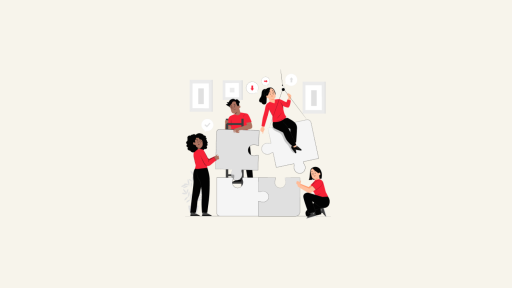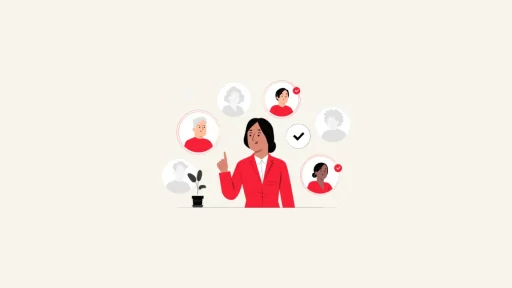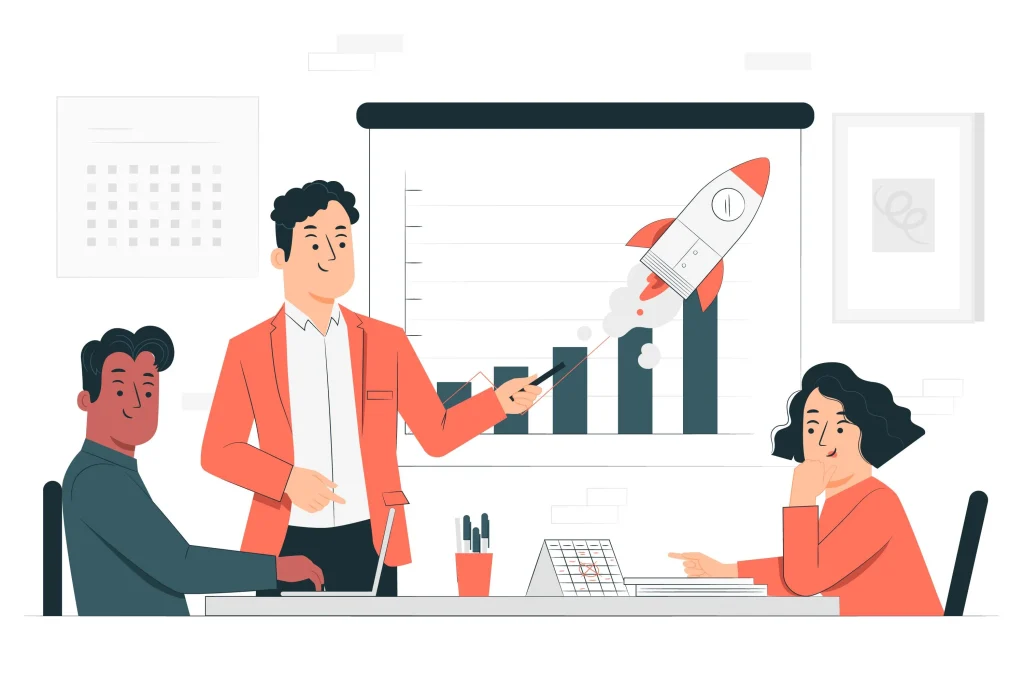
In the intricate dance of entrepreneurship, founders and leaders are not just architects of business strategies; they are the architects of workplace culture. Creating an environment where employees perform their duties and flourish is an art that founders must master. As the heartbeat of any organization, understanding employees’ nuanced desires and priorities is the key to unlocking a workplace where innovation, collaboration, and job satisfaction intertwine. In this comprehensive guide, we embark on a journey to unravel the intricacies of employee priorities and offer founders actionable insights to cultivate a workplace that transcends the mundane – a workplace that radiates the vibrancy of satisfaction and fulfillment.
Meaningful Work and Empowerment
At the core of employee satisfaction lies the profound connection between individuals and their work. Like artisans, employees seek purpose and impact in their daily tasks. Founders can catalyze this connection by understanding each team member’s strengths and passions. When roles are crafted precisely to align with individual skills and personal values, the result is not just a job but a calling.
Understanding Individual Strengths:
Every team member possesses unique strengths that, when recognized and harnessed, can elevate their contributions to unparalleled heights. Founders should invest time in understanding each team member’s strengths, be it analytical prowess, creative thinking, or leadership skills. By aligning tasks with these inherent strengths, employees work and excel in areas where they naturally thrive.
Fostering Autonomy and Ownership:
Empowerment in the workplace is intricately tied to the degree of autonomy granted to employees. A profound sense of empowerment emerges when individuals are free to make decisions and take ownership of their projects. Founders can create an environment that encourages employees to explore innovative solutions, make independent decisions, and take pride in the outcomes of their efforts.
Encouraging a Growth Mindset:
Meaningful work is often synonymous with continuous growth. Founders can instill a growth mindset within the organizational culture, encouraging employees to embrace challenges as opportunities for development. By providing access to learning resources, mentorship programs, and skill-building opportunities, founders demonstrate a commitment to the professional growth of their team members, enhancing the overall sense of purpose and job satisfaction.
Aligning with Organizational Values:
Founders play a pivotal role in articulating and reinforcing the organization’s core values. When employees perceive a strong alignment between their values and the company’s, a sense of purpose blossoms. Founders must communicate these values clearly and integrate them into daily work, fostering an environment where every task contributes to a larger, meaningful mission.
Recognizing Contributions:
Acknowledgment of individual contributions is a cornerstone of meaningful work. Founders should actively recognize and celebrate achievements, whether big or small. This recognition serves as validation, instilling a sense of pride and accomplishment. It also reinforces the idea that each task, no matter how seemingly mundane, is vital in the larger mosaic of organizational success.
The journey toward meaningful work is a collaborative effort between founders and employees. By understanding, valuing, and actively promoting the alignment of individual strengths, autonomy, growth opportunities, organizational values, and recognition, founders can transform work into a source of inspiration and purpose for every team member. This transformation transcends the conventional employer-employee dynamic, fostering a culture where each individual becomes a co-author of the organization’s success story.

Work-Life Balance and Flexibility
In the fast-paced landscape of modern work, the pursuit of a healthy work-life balance has evolved into a cornerstone of employee satisfaction. Recognizing the importance of fostering an environment where personal well-being is not sacrificed for professional demands, founders can strategically integrate work-life balance principles and flexibility into the organizational culture.
Flexible Work Hours:
One of the key pillars of achieving work-life balance is the implementation of flexible work hours. Acknowledging that each team member may have unique peak productivity periods, founders can allow for adaptable schedules. Whether it’s accommodating early risers, night owls, or individuals with familial responsibilities, flexibility in work hours provides autonomy to employees, enabling them to structure their workday in a way that aligns with their personal needs and preferences.
Remote Work Opportunities:
The advent of technology has ushered in an era where remote work is not just a convenience but a necessity. Founders can embrace this shift by offering remote work opportunities, allowing employees to balance professional responsibilities with the comfort and convenience of their home environment. Remote work not only provides flexibility but also reduces commuting stress, contributing to an overall sense of work-life equilibrium.
Clear Boundaries and Expectations:
Maintaining work-life balance requires clear delineation between professional and personal spheres. Founders can play a crucial role in setting expectations regarding response times to emails, communication outside of regular working hours, and respecting personal time. By fostering a culture that respects these boundaries, founders contribute to a healthier work environment, reducing the likelihood of burnout and stress among team members.
Encouraging Time Off and Vacation:
Founders should actively encourage employees to take advantage of their allocated time off and vacation days. A well-rested and rejuvenated team is more likely to be productive and engaged. By promoting a culture that values and respects time away from work, founders send a clear message that the well-being of their employees is a top priority.
Wellness Programs:
Incorporating wellness programs into the workplace is a proactive approach to supporting work-life balance. These programs can include fitness challenges, mindfulness sessions, or access to wellness resources. By prioritizing the physical and mental well-being of employees, founders contribute to a positive and holistic work environment.
Flexibility in Task Management:
Beyond flexible schedules, founders can introduce flexibility in how tasks are managed. Providing autonomy for employees to decide how they approach and complete their work fosters a sense of trust and responsibility. This flexibility accommodates different working styles and enables individuals to adapt their workflow to personal preferences, contributing to a more balanced and satisfying work experience.
Pursuing work-life balance and flexibility is not just a matter of policy but a cultural ethos that founders embed into the DNA of their organizations. By offering flexibility in work arrangements, setting clear boundaries, encouraging time off, promoting wellness, and fostering a culture that values both professional and personal aspects of employees’ lives, founders pave the way for a workplace where individuals can thrive both in their careers and personal pursuits.
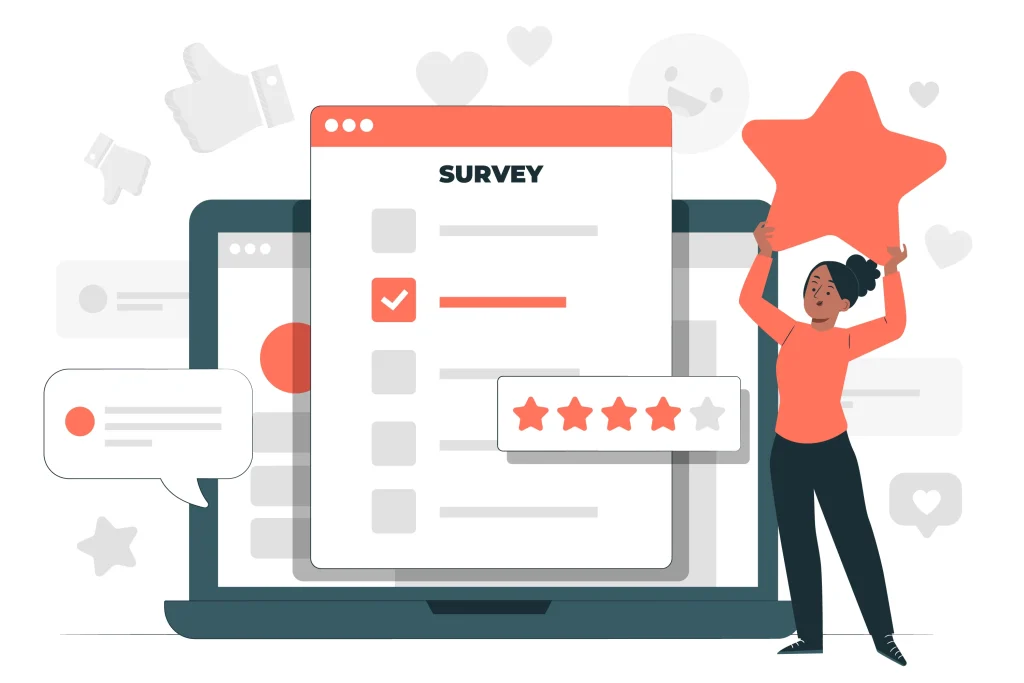
Open Communication and Feedback
Effective communication is the lifeblood of any successful organization, and founders play a pivotal role in creating an environment where open dialogue and constructive feedback are encouraged and ingrained in the cultural fabric.
Establishing Clear Communication Channels:
Founders must first establish clear and accessible communication channels within the organization. This includes regular team meetings, departmental updates, and open-door policies. Whether it’s through traditional face-to-face discussions or digital communication platforms, the goal is to ensure that information flows freely and transparently across all levels of the organization.
Encouraging a Culture of Openness:
Open communication is not just about the transmission of information; it’s about creating a culture where team members feel comfortable expressing their thoughts, ideas, and concerns. Founders can foster this culture by actively seeking input during meetings, encouraging open discussions, and creating platforms for team members to share their perspectives without fear of reprisal.
Real-Time Feedback Mechanisms:
The traditional annual performance review is giving way to more frequent and real-time feedback mechanisms. Founders can implement regular check-ins, one-on-one meetings, and peer-to-peer feedback systems. This approach ensures that constructive feedback is provided promptly, allowing employees to make adjustments and improvements in real-time, rather than waiting for a yearly evaluation.
Digital Communication Platforms:
In the digital age, founders can leverage various communication tools to facilitate seamless interaction. Instant messaging platforms, project management software, and collaboration tools create quick and efficient communication avenues. However, striking a balance is crucial, ensuring that the digital tools enhance rather than hinder open and meaningful communication.
Active Listening:
Open communication is a two-way street; founders must be adept at active listening. This involves not only hearing what team members are saying but understanding the underlying context and emotions. Actively listening to feedback, concerns, and ideas fosters a sense of being heard and valued, contributing to a positive and collaborative work environment.
Feedback as a Two-Way Process:
Feedback should not be a top-down process but a two-way street. Founders should actively seek employee feedback regarding the organizational processes, leadership strategies, and overall work environment. Creating surveys, suggestion boxes, or anonymous feedback mechanisms gives team members a voice in shaping the culture and policies of the organization.
Addressing Concerns Promptly:
Open communication loses its effectiveness if concerns and issues raised by employees are not addressed promptly. Founders should demonstrate a commitment to resolving problems, whether they are related to work processes, interpersonal dynamics, or broader organizational issues. Timely resolution builds trust and reinforces the idea that communication is not just about expression but about action.
Open communication and feedback are foundational elements of a healthy workplace culture. Founders who champion transparent communication, encourage a culture of openness, embrace real-time feedback, leverage digital tools judiciously, actively listen, and address concerns promptly, create an environment where information flows seamlessly, collaboration thrives, and the organization can adapt and evolve in response to the dynamic needs of its workforce.

Professional Development and Continuous Learning
In the professional world’s ever-evolving landscape, founders who prioritize and invest in their team members’ ongoing development foster not only individual growth but also contribute to the resilience and adaptability of the entire organization.
Tailoring Individual Development Plans:
Professional development is not a one-size-fits-all endeavor. Founders should collaborate with each team member to craft individualized development plans. Understanding employees’ unique skills, interests, and career aspirations enables founders to tailor opportunities that align with organizational needs and individual growth trajectories.
Providing Access to Training Programs:
Founders can empower their teams by providing access to a diverse array of training programs. These may include workshops, seminars, online courses, and industry-relevant certifications. By investing in training opportunities, founders demonstrate a commitment to keeping their team members on the cutting edge of industry trends and advancements.
Encouraging Mentorship and Coaching:
Mentorship and coaching programs play a crucial role in professional development. Founders can facilitate these relationships within the organization, connecting experienced mentors with less seasoned team members. This not only accelerates the learning curve for newer employees but also creates a culture of knowledge-sharing and support.
Creating a Culture of Continuous Learning:
Professional development is not a one-time event but a continuous journey. Founders should actively promote a culture of continuous learning, where team members are encouraged to stay curious, seek out new challenges, and embrace opportunities for growth. This mindset shift fosters adaptability and ensures that the organization remains agile in the face of industry changes.
Recognizing and Rewarding Growth:
Founders should actively recognize and reward professional growth and achievements within the organization. This can include promotions, special projects, or additional responsibilities. Acknowledging and celebrating milestones in professional development not only motivates the individual but also sets a standard for the entire team to aspire to continuous improvement.
Providing Opportunities for Skill Application:
Learning gains its true value when it is applied in a practical setting. Founders should create opportunities within the organization for team members to apply and hone the skills they acquire through professional development. This could involve assigning challenging projects, encouraging cross-functional collaboration, or creating a sandbox environment for experimentation and innovation.
Staying Ahead of Industry Trends:
Founders need to stay attuned to the ever-changing landscape of their industry. By staying informed about emerging trends, technologies, and best practices, founders can guide the professional development initiatives of their teams to ensure relevance and alignment with the organization’s strategic goals.
Professional development and continuous learning are not just investments in individuals; they are strategic investments in the organization’s future. Founders who champion tailored development plans, provide access to diverse training opportunities, encourage mentorship, foster a culture of continuous learning, recognize growth, create skill application opportunities, and stay ahead of industry trends position their teams for success in an ever-evolving professional landscape.

Recognition and Appreciation
Acknowledging and celebrating achievements, both big and small, is vital for fostering a positive work culture. Founders can implement recognition programs, employee spotlights, or simple expressions of gratitude to make employees feel appreciated. This recognition contributes to a motivated and loyal workforce.
Acknowledging the efforts and achievements of employees is not merely a formality; it is the bedrock of a positive workplace culture. Founders who prioritize recognition and appreciation create an environment where individuals feel valued, motivated, and connected to the organization.
Regular and Specific Recognition:
Recognition should not be a sporadic occurrence; it should be woven into the fabric of daily work life. Founders can implement regular and specific recognition programs to celebrate both individual and team accomplishments. This could involve weekly shout-outs during team meetings, a designated recognition platform, or personalized notes expressing appreciation.
Public and Private Acknowledgment:
Recognition comes in various forms, and founders should consider both public and private acknowledgment. Public recognition, whether in team meetings or through company-wide communications, not only celebrates the individual but also sets a positive example for the entire organization. At the same time, private acknowledgments, such as personalized emails or one-on-one conversations, offer a more personal touch, demonstrating that the recognition is sincere and specific.
Aligning Recognition with Company Values:
For recognition to have a lasting impact, it should be aligned with the organization’s core values. Founders should ensure that the acknowledgment reflects not only the achievement itself but also how it embodies the company’s values. This alignment reinforces a sense of purpose and connection to the organization’s broader mission.
Encouraging Peer-to-Peer Recognition:
Recognition should not be solely top-down; encouraging peer-to-peer recognition is equally vital. Founders can facilitate a culture where team members are empowered to acknowledge and appreciate each other’s contributions. This not only strengthens team bonds but also creates a positive and collaborative work atmosphere.
Tangible and Symbolic Rewards:
While verbal acknowledgment is powerful, tangible and symbolic rewards add an extra layer of appreciation. This could include certificates, small gifts, or even opportunities for professional development. Tangible rewards serve as visible symbols of achievement and appreciation, creating a sense of pride and accomplishment for the recipient.
Celebrating Milestones:
Milestones, whether personal or professional, deserve special acknowledgment. Founders should actively celebrate work anniversaries, project completions, or other significant achievements. Milestone celebrations contribute to a positive work culture by highlighting the longevity and collective achievements of the team.
Constructive and Specific Feedback:
Recognition is not solely about praising success but also providing constructive and specific feedback. Founders should communicate what went well and why it was impactful. This type of feedback fosters a culture of continuous improvement and empowers employees to replicate success in future endeavors.
Incorporating Recognition into Performance Reviews:
Integrating recognition into formal performance reviews is a strategic way to ensure acknowledgment is a consistent part of the employee evaluation process. Founders can link recognition to performance metrics, tying individual contributions to overall team and organizational success.
Recognition and appreciation are not just gestures of goodwill but essential elements of a thriving workplace culture. Founders who prioritize regular and specific acknowledgment, embrace both public and private recognition, align appreciation with company values, encourage peer-to-peer recognition, offer tangible and symbolic rewards, celebrate milestones, provide constructive feedback, and incorporate recognition into performance reviews, cultivate an environment where individuals feel seen, valued, and inspired to contribute their best to the organization.

Inclusive and Diverse Environment
The journey towards creating an inclusive and diverse workplace is not just a checkbox on a list of corporate initiatives but a commitment to fostering a culture where every individual, regardless of background, feels welcomed, valued, and empowered to bring their authentic selves to work. Founders who champion inclusivity and diversity pave the way for innovation, creativity, and a workplace that reflects the richness of the world beyond its walls.
Establishing a Foundation of Inclusivity:
Inclusivity is the cornerstone of a diverse workplace. Founders should actively foster an environment where every employee feels a sense of belonging, regardless of ethnicity, gender, age, sexual orientation, or physical abilities. This involves promoting open communication, respecting diverse perspectives, and embracing the unique contributions each individual brings to the team.
Implementing Diversity Initiatives:
Diversity initiatives go beyond mere rhetoric. Founders should actively implement and support programs that promote diversity within the organization. This could include recruitment strategies that actively seek diverse talent, mentorship programs to support underrepresented groups, and networking opportunities that connect employees from various backgrounds.
Creating a Culture of Equity:
Equity is a critical component of an inclusive workplace. Founders must ensure that all employees have equal access to opportunities, resources, and advancement. This involves addressing systemic barriers, providing fair compensation, and seeking to eliminate biases in recruitment, promotion, and decision-making processes.
Celebrating Diversity:
Celebrating diversity goes beyond acknowledging differences; it involves actively celebrating them. Founders can organize cultural events, heritage celebrations, or diversity forums that showcase and honor their team members’ varied backgrounds and experiences. By doing so, they reinforce the idea that diversity is accepted and embraced.
Promoting Inclusive Leadership:
Leadership sets the tone for the entire organization. Founders should actively promote inclusive leadership, where leaders prioritize diversity, listen to the voices of all team members, and actively work to create an environment where everyone feels valued. Inclusive leaders foster a sense of trust and collaboration among team members.
Providing Diversity Training:
Education plays a crucial role in building awareness and fostering understanding. Founders can provide diversity training for all employees, creating a shared language and understanding of the importance of inclusivity. These programs should address unconscious biases, promote cultural competence, and provide tools for navigating diverse working relationships.
Ensuring Accessibility:
Creating an inclusive environment also involves ensuring physical and digital accessibility for all employees. Founders should consider the needs of employees with disabilities and provide accessible workspaces, technology, and communication methods. This commitment to accessibility reinforces the idea that every individual’s contribution is valuable.
Actively Addressing Discrimination:
Founders must be vigilant in addressing any incidents of discrimination or bias within the workplace promptly. This involves having clear policies and reporting mechanisms in place and actively communicating a zero-tolerance stance against discrimination. Transparent and proactive measures reinforce the commitment to creating a safe and inclusive environment.
Measuring and Monitoring Progress:
Founders should implement metrics and regular assessments to measure and monitor progress towards a more inclusive and diverse workplace. Regularly collecting and analyzing data on representation, employee satisfaction, and advancement opportunities allows for ongoing improvement and demonstrates a commitment to accountability.
Creating an inclusive and diverse work environment is not just a goal but an ongoing journey. Founders who actively foster inclusivity, implement diversity initiatives, promote equity, celebrate differences, champion inclusive leadership, provide education, ensure accessibility, address discrimination, and measure progress lay the foundation for a workplace where individuals can thrive, contribute, and achieve their full potential.

Fair Compensation and Benefits
Compensation and benefits are not just transactional components of employment; they are integral aspects that reflect a company’s commitment to the well-being and satisfaction of its employees. Founders who prioritize fair compensation and comprehensive benefits attract top talent and foster a culture of loyalty, motivation, and sustained high performance.
Market-Competitive Salaries:
At the heart of fair compensation lies the commitment to providing market-competitive salaries. Founders should regularly review industry salary benchmarks, considering factors such as skills, experience, and geographic location. Ensuring that employees are fairly compensated for their contributions is a fundamental step in building a workforce that feels valued and appreciated.
Transparent Compensation Policies:
Transparency in compensation policies builds trust within the organization. Founders should communicate clearly about how salaries are determined, taking into account performance evaluations, market rates, and other relevant factors. Clear communication helps mitigate potential disparities and ensures that employees understand the rationale behind their compensation.
Equitable Compensation Practices:
Equity in compensation involves eliminating gender, race, or other biases that may contribute to wage gaps. Founders must actively assess and address any disparities in pay, ensuring that individuals performing similar roles with similar qualifications receive equitable compensation. This commitment to fairness creates a culture of equality and inclusivity.
Comprehensive Benefits Packages:
In addition to salaries, founders should provide comprehensive benefits packages that address the diverse needs of their workforce. This could include health insurance, dental and vision coverage, retirement plans, life insurance, and other perks such as wellness programs or flexible spending accounts. A robust benefits package enhances the overall job satisfaction of employees.
Flexible Compensation Structures:
Recognizing that individuals have different financial needs and priorities, founders can implement flexible compensation structures. This might include options for flexible working hours, remote work opportunities, or even alternative compensation models such as performance bonuses, profit-sharing, or stock options. Flexibility in compensation caters to the diverse preferences of team members.
Regular Compensation Reviews:
Market dynamics, inflation, and individual performance changes over time. Founders should conduct regular compensation reviews to ensure that employees’ salaries remain competitive and reflective of their contributions. These reviews also provide an opportunity to address any discrepancies and make adjustments accordingly.
Education on Total Compensation:
Employees may not always fully understand the totality of their compensation package. Founders should invest in educating their team about the entire spectrum of benefits and perks available to them. This includes not only monetary components but also non-monetary aspects such as professional development opportunities, mentorship programs, and employee assistance programs.
Employee Recognition Programs:
While compensation is crucial, acknowledgment of exceptional performance is equally vital. Founders can implement employee recognition programs that go beyond financial rewards. These programs can include public acknowledgments, awards, or additional non-monetary perks to show appreciation for outstanding contributions.
Promoting Financial Well-being:
Founders can support the financial well-being of their employees by offering financial planning resources, workshops, or access to financial advisors. Addressing the holistic financial health of employees contributes to reduced stress and increased satisfaction, positively impacting both personal and professional aspects of their lives.
Fair compensation and comprehensive benefits are not just about meeting market standards; they are about demonstrating a commitment to the overall well-being of employees. Founders who prioritize transparent and equitable compensation, offer diverse and comprehensive benefits, maintain flexibility, conduct regular reviews, educate employees on total compensation, implement recognition programs, and support financial well-being create a workplace where individuals feel valued, motivated, and invested in the long-term success of the organization.

Empowerment and Autonomy
Empowerment and autonomy are not just management buzzwords; they are powerful principles that transform employees from mere executors of tasks into engaged, innovative contributors when integrated into the workplace. Founders who champion empowerment and autonomy cultivate an environment where individuals are not just employees but partners in the organization’s success.
Delegating Responsibility:
Founders should recognize the strengths and capabilities of their team members and actively delegate responsibilities accordingly. Empowering employees with meaningful tasks demonstrates trust in their abilities and provides opportunities for skill development and personal growth. This delegation should be aligned with individual strengths and aspirations.
Encouraging Independent Decision-Making:
Autonomy involves allowing employees to make decisions within their areas of responsibility. Founders should encourage independent decision-making, empowering employees to take ownership of their projects. This fosters a sense of accountability, initiative, and confidence as individuals see the direct impact of their choices on the outcomes.
Creating a Culture of Ownership:
Ownership goes beyond task completion; it’s about instilling a sense of pride and responsibility for the organization’s overall success. Founders should actively promote a culture where employees view their work as more than a job—it contributes to a collective vision. When individuals feel a sense of ownership, they are likelier to go above and beyond to ensure success.
Providing Autonomy in Work Methods:
Autonomy extends to how tasks are approached and executed. Founders can foster a culture that values diverse working styles and allows employees to choose methods that best suit their strengths. This flexibility enhances creativity and enables individuals to tailor their work processes for optimal efficiency and effectiveness.
Encouraging Innovation and Creativity:
Empowered and autonomous employees are more likely to bring innovative ideas to the table. Founders should actively encourage a culture of creativity where individuals feel free to express and explore their ideas without fear of criticism. This can involve dedicated brainstorming sessions, idea-sharing platforms, or innovation-focused projects.
Providing Resources and Support:
While autonomy is essential, providing the necessary resources and support is equally crucial. Founders should ensure that employees can access the tools, training, and mentorship needed to succeed in their autonomous roles. This support structure reinforces the notion that empowerment is not about isolation but about equipping individuals for success.
Recognizing and Celebrating Achievements:
Acknowledging achievements is a fundamental aspect of empowerment. Founders should actively recognize and celebrate the successes of their team members, whether big or small. Public acknowledgment reinforces the value of individual contributions, fostering a positive and motivating environment.
Promoting a Growth Mindset:
Empowerment is closely tied to a growth mindset—the belief that abilities can be developed through dedication and hard work. Founders should actively promote this mindset within the organization, encouraging employees to view challenges as opportunities for growth and learning. This approach fosters resilience and a positive attitude toward autonomy.
Open Communication and Feedback:
Effective communication is essential in an empowered and autonomous workplace. Founders should establish open channels for communication and actively seek feedback from employees. This ensures that individuals feel heard, valued, and have the opportunity to express their needs, concerns, and ideas.
Empowerment and autonomy are not just leadership strategies but foundational principles shaping the fabric of a dynamic and engaged workplace. Founders who delegate responsibility, encourage independent decision-making, foster a culture of ownership, provide autonomy in work methods, promote innovation, offer support, recognize achievements, encourage a growth mindset, and maintain open communication create an environment where employees feel not just empowered but inspired to contribute their best to the success of the organization.

Wellness Programs and Social Responsibility
A commitment to employee well-being extends beyond the realms of professional responsibilities. Founders who prioritize wellness programs and social responsibility foster healthier and happier individuals and contribute to a positive workplace culture and a broader impact on the community and society.
Implementing Comprehensive Wellness Programs:
Wellness programs encompass a range of initiatives designed to enhance employees’ physical, mental, and emotional health. Founders can introduce fitness challenges, mental health workshops, mindfulness sessions, and access to wellness resources. These programs demonstrate a commitment to the well-being of the team but also contribute to increased productivity and job satisfaction.
Flexible Work Arrangements and Work-Life Balance:
Well-being extends to the balance between professional and personal life. Founders can facilitate a healthy work-life balance by offering flexible work arrangements, remote work options, and paid time off. Recognizing the importance of downtime and personal pursuits reduces stress and improves overall well-being.
Access to Healthcare and Mental Health Services:
Providing access to quality healthcare, including mental health services, is a crucial aspect of employee well-being. Founders can offer health insurance plans, Employee Assistance Programs (EAPs), and resources for mental health support. These initiatives remove barriers to seeking healthcare and underscore the organization’s commitment to the holistic well-being of its employees.
Promoting Physical Activity and Nutrition:
Physical health is a cornerstone of overall well-being. Founders can encourage physical activity by providing gym facilities, organizing fitness classes, or promoting wellness challenges. Additionally, promoting healthy eating habits through nutritional programs and initiatives contributes to the long-term health of employees.
Community Engagement and Social Responsibility:
Social responsibility involves extending the organization’s impact beyond its immediate walls. Founders can initiate community engagement programs, volunteer opportunities, and partnerships with local charitable organizations. This not only fulfills a sense of social responsibility but also provides employees with a meaningful connection to a larger purpose.
Diversity and Inclusion Initiatives:
Creating a diverse and inclusive workplace contributes to the well-being of every individual within the organization. Founders can implement initiatives promoting diversity and inclusion, ensuring all employees feel valued and respected. This commitment to diversity goes beyond compliance; it becomes an integral part of the organization’s identity.
Sustainability Practices:
Environmental well-being is an often overlooked aspect of overall wellness. Founders can incorporate sustainability practices into the workplace, such as recycling programs, energy-efficient measures, or eco-friendly initiatives. Engaging in environmentally responsible practices aligns the organization with broader global concerns, fostering a sense of purpose among employees.
Financial Wellness Programs:
Financial stress can significantly impact well-being. Founders can introduce financial wellness programs that offer resources, workshops, and tools to help employees manage their finances effectively. These programs can cover topics such as budgeting, investment planning, and debt management.
Recognition of Work-Life Milestones:
Acknowledging and celebrating significant work-life milestones contributes to a positive workplace culture. Founders can recognize service anniversaries, personal achievements, and life events such as marriages or births. These recognitions reinforce the organization’s commitment to the well-being and happiness of its employees.
Regular Employee Feedback:
Well-being programs should be responsive to the evolving needs and preferences of employees. Founders should actively seek feedback through surveys, focus groups, or regular check-ins to understand the effectiveness of existing initiatives and identify areas for improvement or expansion.
Wellness programs and social responsibility initiatives are not just add-ons to workplace practices; they are integral components that contribute to a holistic and sustainable work environment. Founders who prioritize comprehensive wellness, foster social responsibility, promote diversity and inclusion, engage in sustainable practices, and recognize work-life milestones create a workplace where employees thrive professionally and personally, contributing to a positive and meaningful organizational culture.
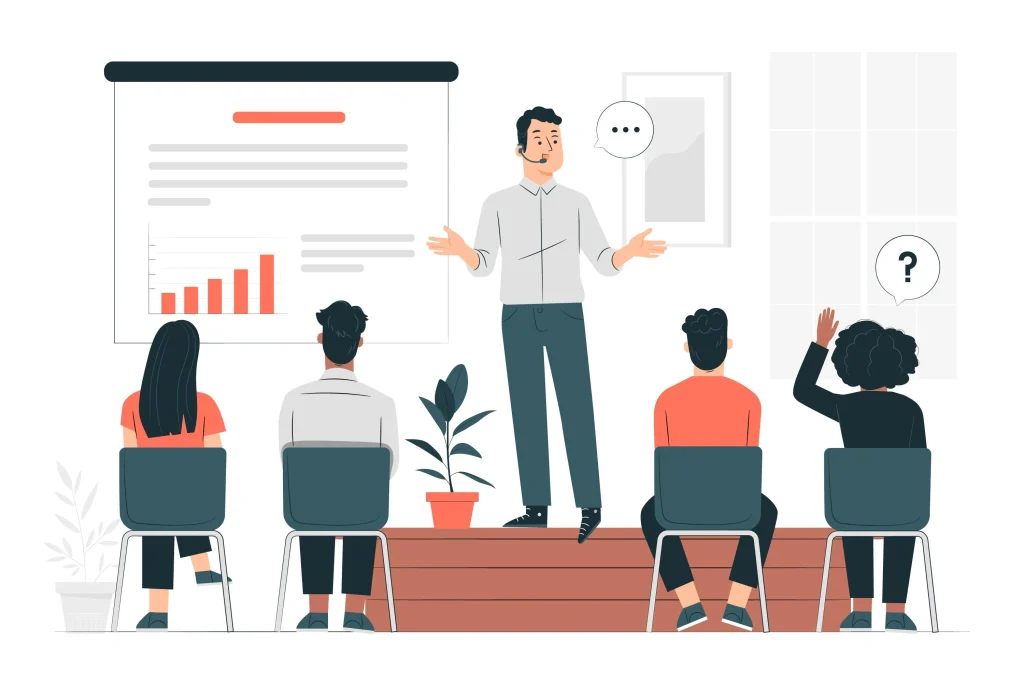
Continuous Learning Opportunities and Regular Social Interactions
The modern workplace is dynamic, and its success is deeply intertwined with its workforce’s continuous growth and well-being. Founders who prioritize continuous learning opportunities and regular social interactions invest in their employee’s professional development and cultivate a vibrant and collaborative workplace culture.
Ongoing Training and Development:
Continuous learning is a cornerstone of professional growth. Founders can provide ongoing training and development opportunities to ensure employees stay abreast of industry trends, acquire new skills, and enhance existing ones. This could involve workshops, webinars, online courses, and access to relevant conferences.
Encouraging a Learning Culture:
Founders should actively promote a learning culture within the organization. This involves fostering an environment where curiosity and the pursuit of knowledge are celebrated. Encouraging employees to share insights, lessons learned, and new discoveries contributes to a culture of continuous improvement.
Mentorship and Coaching Programs:
Mentorship and coaching are powerful tools for employee development. Founders can implement formal mentorship programs where experienced employees guide and support their less experienced counterparts. This not only accelerates the learning curve for newer employees but also fosters a sense of connection and shared growth.
Cross-Functional Collaboration:
Learning often occurs most effectively in a collaborative setting. Founders can facilitate cross-functional collaboration by organizing projects or initiatives that require employees from different departments to work together. This not only expands individual skill sets but also enhances teamwork and communication.
Professional Networking Opportunities:
Networking is a vital aspect of professional growth. Founders can provide opportunities for employees to engage in professional networking events, both within and outside the organization. Networking opens doors to new perspectives, potential collaborations, and career advancement opportunities.
Skill Application in Real Projects:
Learning gains true value when it is applied in practical settings. Founders should create opportunities for employees to apply newly acquired skills in real projects. Whether it’s through challenging assignments, innovative projects, or problem-solving initiatives, hands-on experiences solidify learning and contribute to professional development.
Regular Social Interactions:
Social interactions are the glue that binds a team together. Founders should recognize the importance of regular social interactions, whether they occur during breaks, team-building events, or informal gatherings. These interactions foster a sense of camaraderie, build strong interpersonal connections, and contribute to a positive and cohesive workplace culture.
Team-Building Activities:
Structured team-building activities provide a platform for employees to collaborate in a relaxed and enjoyable setting. Founders can organize activities such as team retreats, games, or off-site events. These activities not only strengthen team bonds but also create lasting memories that enhance the overall work experience.
Celebrating Milestones and Achievements:
Recognizing and celebrating milestones and achievements is a form of social reinforcement. Founders should actively acknowledge individual and team accomplishments, whether they are related to project completions, professional certifications, or personal milestones. Celebration builds a positive and motivating atmosphere within the workplace.
Open Communication Channels:
Continuous learning and social interactions thrive in an environment of open communication. Founders should establish clear communication channels that encourage the sharing of ideas, feedback, and knowledge. This transparency contributes to a culture where information flows freely, facilitating continuous learning and collaboration.
Continuous learning opportunities and regular social interactions are elements of a well-rounded workplace and catalysts for growth, collaboration, and a positive organizational culture. Founders who prioritize ongoing development, create opportunities for collaboration, foster a learning culture, facilitate mentorship, encourage networking, provide skill application opportunities, promote social interactions, organize team-building activities, celebrate achievements, maintain open communication channels, and cultivate a workplace where individuals thrive personally and professionally.
Conclusion
In the grand finale of this comprehensive guide, we stand at the crescendo of what it means to nurture workplace bliss. Founders, armed with the understanding that their teams are not just employees but essential contributors to the organization’s tapestry, have the power to shape a culture that inspires. The journey toward employee satisfaction is not a destination but a continuous exploration, a commitment to fostering an environment where individuals contribute their skills and find fulfillment and joy in their professional journey. As founders, leaders, and architects of culture, the responsibility lies in building successful businesses and building places where individuals thrive, creating a legacy that echoes through the corridors of time. The workplace is not just where we spend our days; it’s where we craft our futures. The journey to workplace bliss begins here, and the destination is limited only by our collective imagination and commitment to creating something extraordinary.
This article was created by the FirstHR team. You can find even more helpful HR tips in the Guides section. In the Template section we have prepared for you the most popular HR documents that you can download for free. Enjoy!


